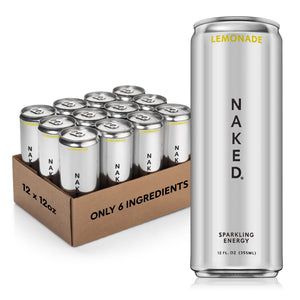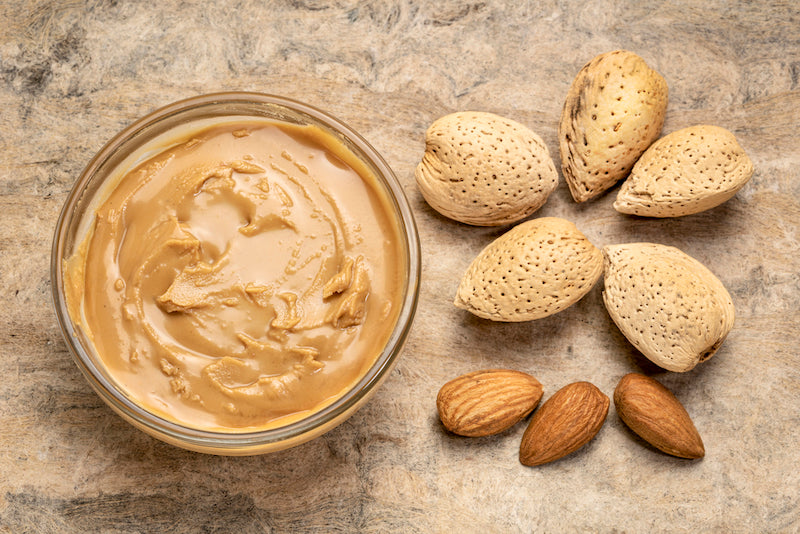By now everyone knows that protein is an essential nutrient for the body, playing an important role in building and repairing tissues, producing enzymes and hormones, and supporting overall health.
However, not all proteins are created equal.
When it comes to whether a protein source is complete or not, it all boils down to its amino acid profile. We’re spilling the tea on almond protein – its amino acids, completeness, and its potential benefits for muscle growth.
Protein and Amino Acids
Proteins are made up of amino acids, which are often referred to as the building blocks of protein. There are 20 different amino acids, most of which your body can make on its own. There is a specific group of amino acids that cannot be made in the body, but instead must be consumed from food or supplements. These are known as essential amino acids.
What are Essential Amino Acids?
The nine essential amino acids include histidine, isoleucine, leucine, lysine, methionine, phenylalanine, threonine, tryptophan, and valine. Consuming foods that contain all nine essential amino acids is the key to maintaining a healthy diet.
What is a Complete Protein?

A protein source that provides enough of all nine essential amino acids is referred to as a complete protein. Complete proteins are typically found in animal-based sources such as meat, fish, eggs, and dairy products. Plant-based sources like legumes, grains, and nuts may not always be considered complete proteins, as they may lack or be deficient in one or more essential amino acids.
Is Almond Protein a Complete Protein?
Almond powder protein is a plant-based protein source. Almonds are relatively high in protein, but are they considered a complete protein? The answer is no.
Like most plant-based protein sources, almonds do not contain all nine essential amino acids in sufficient quantities. They are low in lysine, an essential amino acid needed for proper growth, playing an essential role in the production of carnitine, a nutrient responsible for converting fatty acids into energy and helping lower cholesterol.
How to Complete Almond Protein?
While almond protein on its own is not a complete protein, it can become complete when combined with other plant-based protein sources. For example, you can pair almond protein with legumes like lentils, beans, or peas, as they are rich in lysine. Combining these complementary proteins helps fill in the gaps in amino acid profiles, creating a more balanced and complete protein source.
Including a variety of plant-based foods in your diet is an effective way to ensure that you're getting all the essential amino acids your body needs. Additionally, consuming almond protein in combination with other plant-based proteins can provide a well-rounded amino acid profile, making it a valuable component of a plant-based diet.
Does Almond Protein Have All the BCAAs?
Branched-Chain Amino Acids (BCAAs), which include leucine, isoleucine, and valine, are known for their significant role in muscle protein synthesis and overall muscle health. These amino acids are essential for those looking to support muscle growth and recovery.
Almond protein, while not a complete protein, does contain all three BCAAs. Leucine plays a substantial role in initiating muscle protein synthesis. Almond protein can contribute to muscle health and growth, especially when combined with other protein sources to provide a well-rounded amino acid profile.
Is Almond Protein Good for Muscle Growth?
When consumed as part of a balanced diet with a variety of other protein sources, almond protein can be great for muscle growth. While it may not be a complete protein on its own, it does contain all of the BCAA and can support muscle protein synthesis and recovery.
To maximize the benefits of almond protein for muscle growth, you can complement it with other plant-based protein sources that make up for the amino acids it lacks.
Almond protein is an excellent choice for those who follow vegetarian or vegan diets, as it offers a plant-based alternative to animal-based protein sources. It can be added to smoothies, baked goods, or as a supplement to increase your protein intake.

Conclusion
Although almond protein is not a complete protein (it’s low in lysine), it can still be a valuable addition to your diet, especially when combined with other plant-based protein sources to create a complete amino acid profile.
Almond protein contains all three BCAAs, making it beneficial for muscle growth and recovery when consumed as part of a well-rounded, plant-based diet. If you're exploring plant-based protein options, almond protein can be a nutritious choice to support your nutrition and fitness goals.










